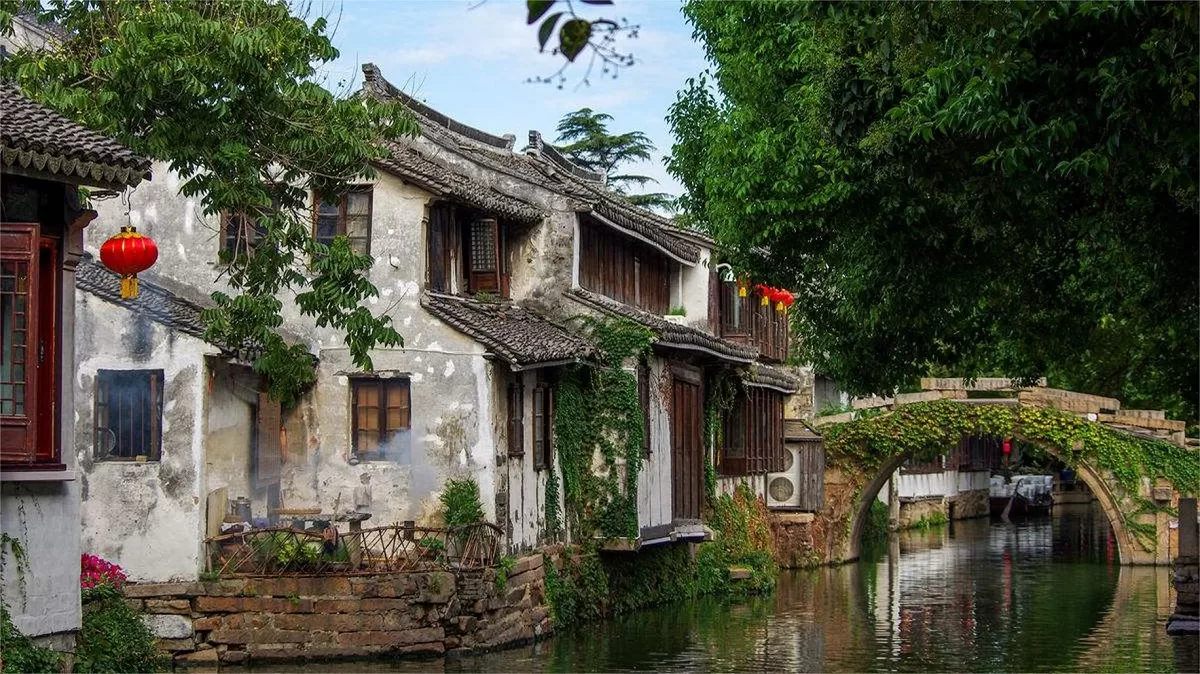Zhouzhuang and Zhujiajiao are two ancient water towns in China, each with its own unique charm and characteristics. While they share some similarities due to their historical and cultural significance, they also have distinct differences that set them apart. Let’s explore the similarities and differences between Zhouzhuang and Zhujiajiao:
Similarities:
- Water Town Setting: Both Zhouzhuang and Zhujiajiao are traditional Chinese water towns, known for their picturesque canals, old bridges, and well-preserved historic architecture. They offer visitors a glimpse into China’s ancient past and traditional way of life.
- Venice of the East: Both towns have earned the nickname “Venice of the East” for their network of waterways and the use of boats as a primary mode of transportation.
- Ancient History: Zhouzhuang and Zhujiajiao both have a rich history dating back over a thousand years. They were established during the Song (960-1279) and Yuan (1271-1368) dynasties, respectively, and have witnessed centuries of cultural development.
- Architectural Beauty: Visitors to both towns can admire well-preserved historic buildings, including traditional Chinese residences, ancient temples, and stone bridges. These structures reflect the architectural styles of their respective dynastic periods.
Differences:
- Location: Zhouzhuang is located in Jiangsu Province, near Suzhou and Shanghai, making it easily accessible from these major cities. Zhujiajiao, on the other hand, is situated in the Qingpu District of Shanghai, making it a more convenient destination for those staying in Shanghai.
- Size: Zhouzhuang is larger in size compared to Zhujiajiao. It covers an area of about 36 square kilometers, while Zhujiajiao is smaller at approximately 2 square kilometers.
- Transportation: Zhouzhuang is known for its gondola-style boats that transport visitors through its waterways. In Zhujiajiao, visitors can also take boat rides, but there’s a more significant focus on exploring the town by foot, as it’s relatively compact.
- Cultural Significance: While both towns have a strong cultural heritage, Zhouzhuang is known for its association with Chinese classical literature and art, and it has inspired numerous poems and paintings. Zhujiajiao, on the other hand, is celebrated for its Ming and Qing Dynasty architecture and the historical significance of its old streets.
- Tourism: Zhouzhuang is a well-established tourist destination, and it can get crowded during peak seasons. Zhujiajiao, being closer to Shanghai, may receive more visitors from the city and, as a result, can also be quite crowded, especially on weekends.
In summary, Zhouzhuang and Zhujiajiao are both beautiful ancient water towns that offer a glimpse into China’s rich history and culture. While they share common characteristics, such as their water-based transportation systems and historic architecture, they also have distinct differences in terms of location, size, cultural significance, and the overall experience they offer to visitors.


